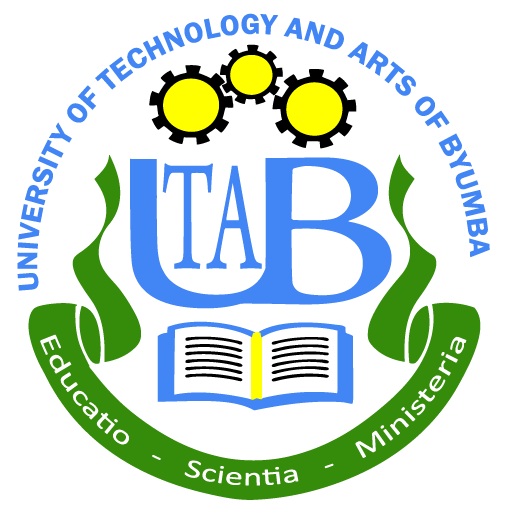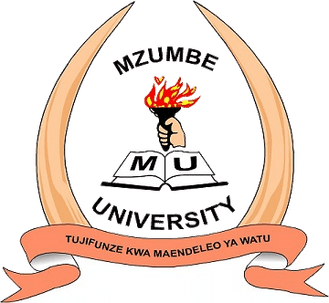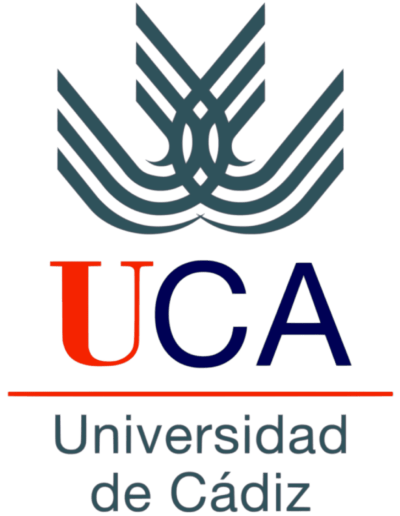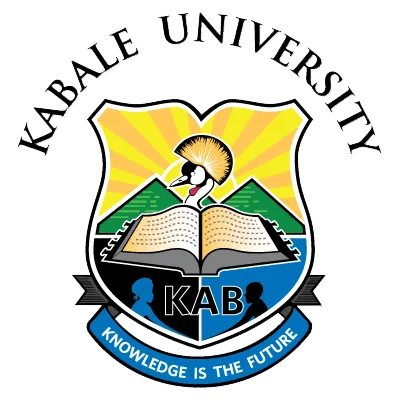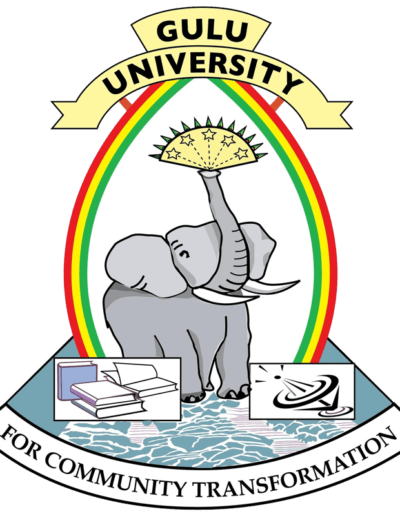Welcome to
BuildiNg CapacitIeS in Water, Renewable Energy and Agriculture to EnHAnce Local Resilience to ClimaTe Change in AfrIca (NISHATI) Call For NISHATI Logo Design CompetitionSubmit Your Logo!The buildiNg capacitIeS in water, renewable energy and agriculture to enHAnce local resilience to climaTe change in afrIca (NISHATI) project, which means Energy in Swahili, aims to bring growth and innovation to six universities in Africa (2 in Tanzania, 2 in Uganda and 2 in Rwanda) in the field of Eco-agriculture, water management, and green energy for agriculture through the improvement and increase of the educational offer and the acquisition of transversal skills, in particular related to business and development of new economies that, together with the creation of a network of stakeholders, will lead to a concrete enhancement of professional competitiveness.
The core of the project addresses the integration and/or creation of new curricula on the basis of the findings of the needs analysis focusing on responding to the regional priorities, especially the Green Deal and Sustainable growth and jobs, through the design of an innovative teaching method based on a triangle approach (theoretical and practical competences and the training of local trainers), the innovation of existing curricula and the integration with new courses, the installation of green labs and the access to the local communities. The Multidisciplinary approach in teaching will be focused on four main aspects: technical, economic, governance and societal, moreover Practical Labs (installed at the Universities or supporting local needs of villages) will be offered to design installation and monitoring of performance conducted by professors and students. Business Skills Labs will provide the final competences.
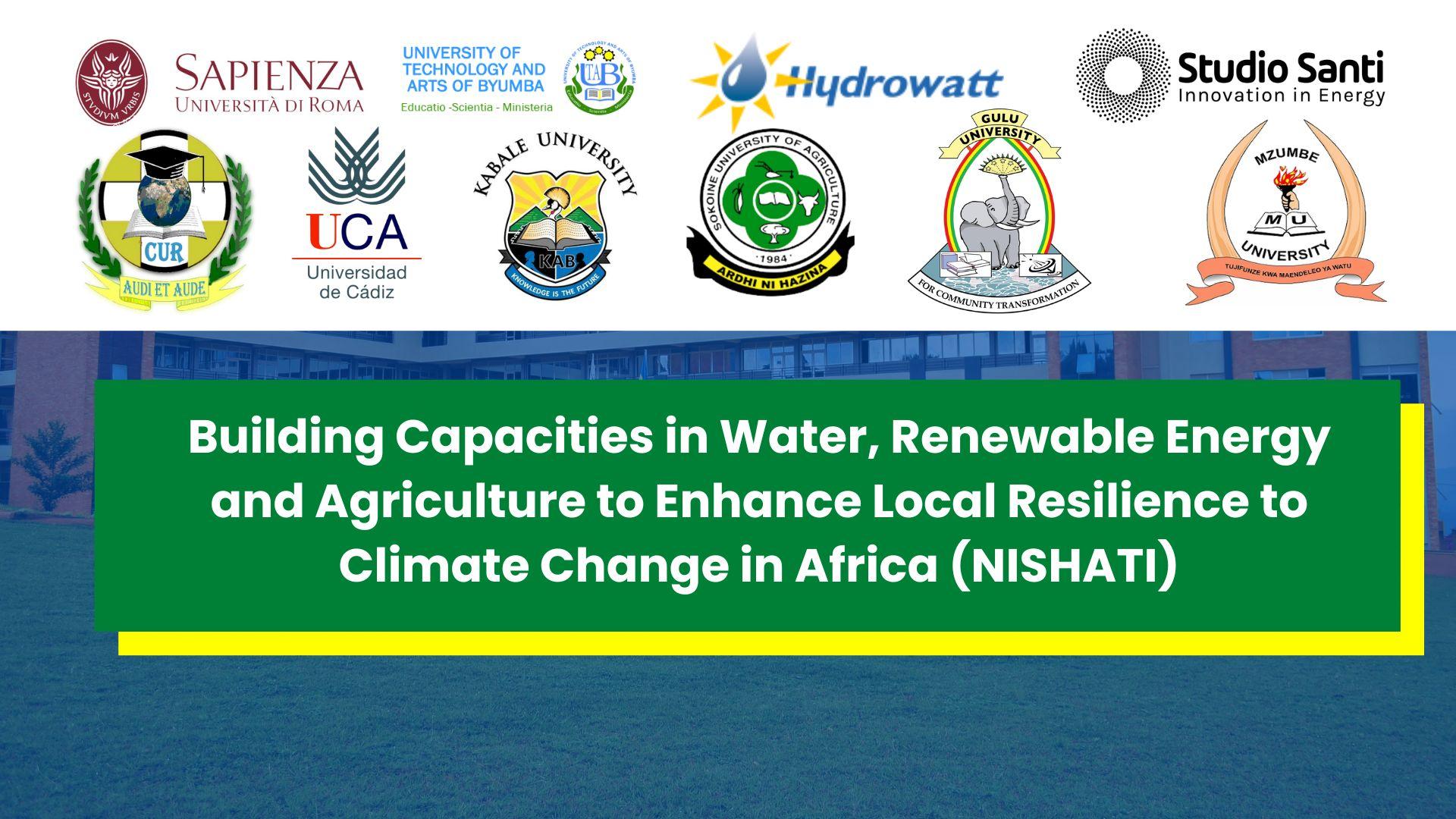
NISHATI SEMINARS 2024
Sustainability Strategies
We kindly invite you to fill this form to register to the seminars organized in the framework of NISHATI project, an initiative funded in the framework of the ERASMUS+ programme.
Main Objective
————-
NISHATI project’s main objective is then to modernize and increase the quality of education in ecoagriculture, water management and renewable energy in the East African Region, to contribute to remove this important barrier and to have an important social impact, reducing the number of unemployed workforce and, in this way, fighting against poverty.
The project aims also to enable the creation of millions of indirect jobs in the Countries, through an increased capability in the agricultural sector and use of modern renewable energies, crucial factors for country’s (sustainable) development.
NISHATI project has been designed to respond to the territorial needs of the beneficiary countries involved, to foster international cooperation and to lay the foundations for an efficient modernization and quality of higher education in Uganda, Tanzania and Rwanda. This project is conceived in the context of knowledge exchange between European universities and African universities and between African Universities and their communities.
Specific Objectives
————-
- To enhance local competencies in the sustainable use of resources, like land, water, and energy.
- To provide high-level technical skills, especially in scientific faculties, to enable the green and sustainable recovery, crucial for the economic development of Tanzania, Uganda, and Rwanda.
- To innovate the teaching methodologies in the beneficiary universities introducing concepts like active learning, digital learning, practical experiences, sustainability, and inclusion in the academy.
- To modernize the existing programmes on eco-agriculture, water management and green energy in n. 6 Universities;
To train professors, trainers, and professionals on interdisciplinary topics concerning eco-agriculture, water management, green energy, and sustainable goals, mainly in Africa. - To innovate and power existing laboratories with new equipment.
- To enhance the collaboration with the labor market and to valorize the capabilities of students to create their businesses.
- To promote at the academic level and in civil society the main principles and priorities of the Green Deal.
Work Packages
————-
- Management, financial, and monitoring framework
- New framework for innovative teaching, Academic Quality Assessment, Inclusion Strategy, and Project Sustainability
- Innovation in existing and new curricula
- Practical Laboratories and Community Services
- Training sessions for trainers
- Delivery of courses and Business skills lab
- Communications and promotion

